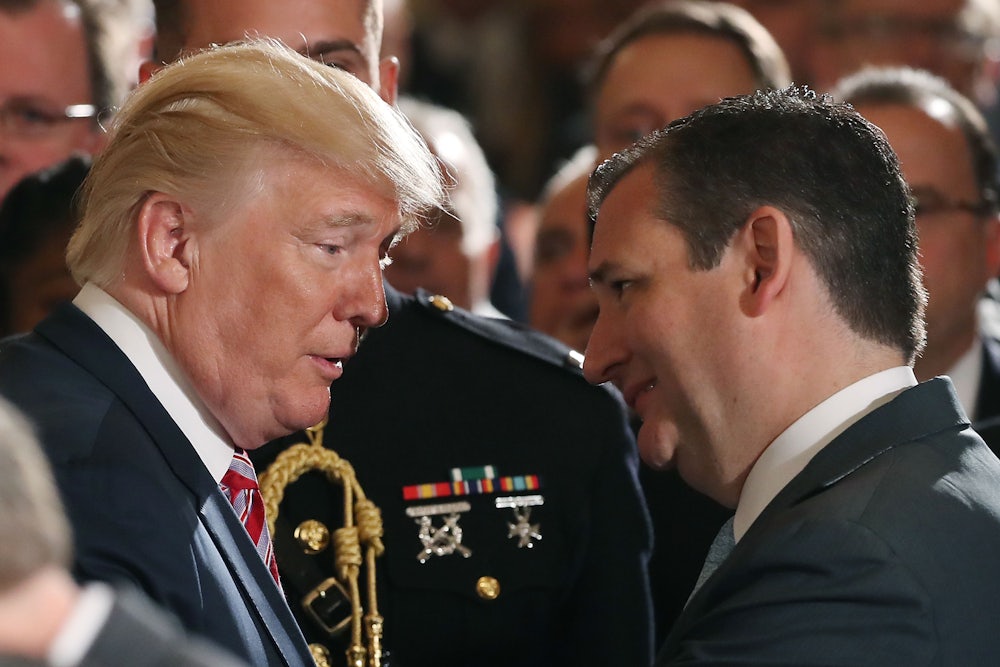America’s 200-year streak of peacefully transferring power came to an end on Wednesday after President Donald Trump incited thousands of his supporters to storm the U.S. Capitol, where lawmakers had gathered to confirm President-elect Joe Biden’s victory in the November election. The seizure of the Capitol marked the first time the seat of government had fallen to hostile forces since British troops burned Washington in 1814.
Trump, speaking in a video message on Wednesday night, praised those who carried out the coup attempt that he had spent weeks encouraging. “We love you,” he said in the clip on Twitter, which appears to have been filmed outside the White House. “You’re very special.” He repeated his lies that he won the election in a landslide, then mildly requested that the protesters disperse. As the sun began to set in Washington and a curfew took effect, hundreds remained in and around the Capitol building.
In hindsight, it felt inevitable that it would end like this. Earlier this year, Trump happily egged on armed protesters who stormed the Michigan statehouse over Covid-19 restrictions. He refused to condemn a thwarted plot to kidnap Michigan Governor Gretchen Whitmer for the same reason. He said there were “very fine people on both sides” of the white nationalist march in Charlottesville. During the presidential debates in October, he told the Proud Boys to “stand back and stand by.” Trump relishes violence and bloodshed and savors its use against those he disfavors. This time, his target was the United States Congress—and, by extension, American democracy.
What should Congress do once it reconvenes? Its first duty is to finish counting the Electoral College votes so that Biden can take office on January 20. The moment it finishes, the House should file impeachment charges against Trump for inciting the attempted overthrow of the federal government. The Senate should hold a brief trial—it should not take long to present evidence to people who were firsthand witnesses to the crime—and find him guilty. He would automatically be removed from the presidency; senators should also vote to forever disqualify him from holding office again.
Members of Congress who helped encourage these rioters should face consequences, as well. It takes a two-thirds vote for either the House or the Senate to expel one of its members. Those who cynically tried to toss out the election results, such as Arizona Representative Paul Gosar, Missouri Senator Josh Hawley, and Texas Senator Ted Cruz, should face votes for their removal, as well. If those votes fail, they should face the same consequences as former Iowa Representative Steve King: the loss of their committee assignments by party leadership and a pariah-like treatment for the remainder of their term. Newly sworn-in Congresswoman Cori Bush plans to jump-start this process, at least symbolically, by introducing a resolution calling for such expulsions.
Once Biden is inaugurated, the next attorney general should consider charging Trump with sedition and advocating the overthrow of the federal government. Most of the debates surrounding Trump’s potential prosecution before now have revolved around his exposure for tax-related crimes and other shady business practices. As recently as this morning, former FBI Director James Comey audaciously argued that the Biden Justice Department shouldn’t pursue charges against Trump. That quaint discussion is now academic. “It’s not protest,” Biden himself acknowledged while addressing the country on Wednesday evening. “It’s insurrection.” It should be treated accordingly.
Why are such harsh measures justified? Because Trump and his band of rioters won today. They walked into the heart of American democracy, they forced the people’s representatives to flee, they pillaged and looted the Capitol, and they walked right back out. They had a good time. They had fun. They will brag about it and use it to recruit more followers. And unless they face consequences for their actions, they will do it again.




